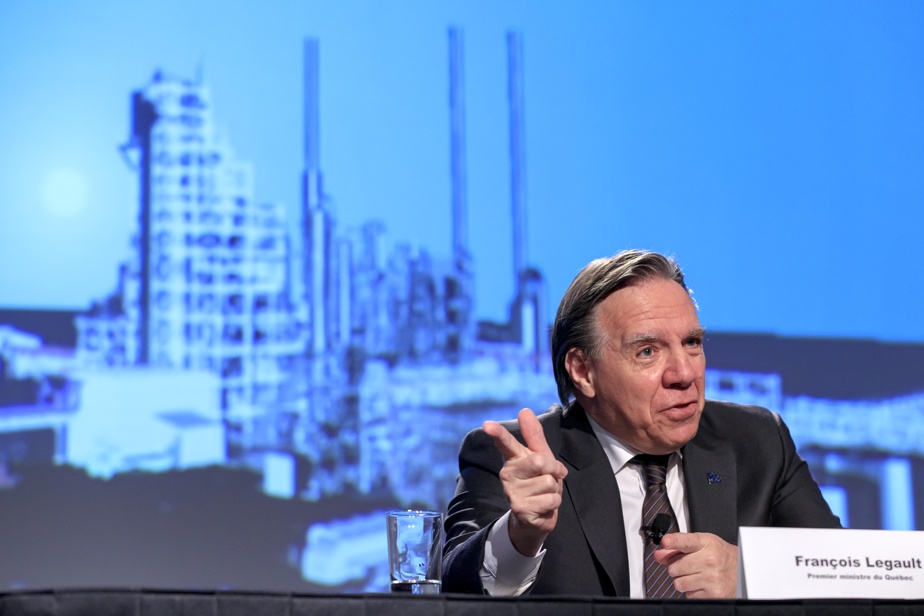(Calgary) The Canada Infrastructure Bank is making its first low-carbon fuels investment by committing $277 million to a biofuels facility under construction in Varennes.
The facility, known as Varennes Carbon Recycling, will cost a total of 1.2 billion. It is a joint venture project between Shell, Suncor Energy, the Swiss natural gas company Proman and the Government of Quebec.
It is being built by Montreal-based Enerkem, whose proprietary technology will be used to produce biofuels and renewable chemicals from non-recyclable residual materials and forest biomass. The plant will also incorporate one of the largest electrolyzers in the world, which will split water molecules into oxygen and green hydrogen for use in its biofuel manufacturing process.
The project, which was first announced in 2020, will be the largest biofuel facility in the country when it is completed in 2025, said Canada Infrastructure Bank President and CEO Ehren Cory.
“What attracted us to the project was its scale and ambition, first of all,” he said.
“For us at BIC, this is our first investment in an area that I believe has enormous potential for our country. »
Interest in biofuels has gained prominence recently. These fuels derived from renewable biomass such as agricultural waste, food waste, or even algae, can become an asset as companies seek to reduce their greenhouse gas emissions.
Other projects of this kind are taking shape across the country. Imperial Oil plans to build a renewable diesel complex at its Strathcona refinery near Edmonton, and Atco Energy plans to operate a renewable natural gas facility near Vegreville, Alberta.
In last year’s federal budget, the Canada Infrastructure Bank, a federal Crown corporation, was given a mandate to include the production of clean fuels, the use of capture and storage carbon dioxide and hydrogen production in its existing clean energy and green infrastructure investment areas.
“I don’t think the private sector is lagging behind or reluctant. We’ve actually seen a ton of interest from private sector players, large and small, across the country,” Cory explained.
“The challenge we see — and I think that’s why the Canada Infrastructure Bank plays such an important role — is the level of risk and uncertainty that these projects still carry. »
Recently, Parkland Fuel announced that it would not go ahead with its plan to build a stand-alone renewable diesel complex at its refinery in Burnaby, British Columbia, arguing that the company could not compete. with financial incentives offered in the United States for renewable fuel facilities.
Mr. Cory noted that there is also market risk and uncertainty about what kind of customers will pay for low-carbon fuels, and how carbon pricing schemes and carbon credits in different jurisdictions will influence this market.
“We all know what 2050 will look like, but there’s a lot of uncertainty about how to get there,” Cory said. This is where we can help. »
He added that the CIB was seeking to finance up to $5 billion in green infrastructure projects, which should accelerate the deployment of these technologies by helping private sector developers reduce their risk.
The Varennes carbon recycling facility is expected to convert more than 200,000 tonnes of non-recyclable waste into biofuels annually, with a capacity of up to 130 million litres.
Project proponents say the facility will reduce greenhouse gas emissions by more than 170,000 tonnes per year, the equivalent of taking 50,000 passenger vehicles off the road.
